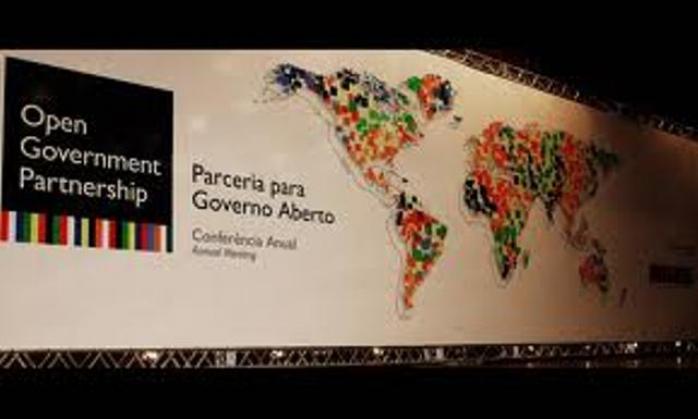OGP in Africa: Civil Society Organizations Share Experiences
The Africa Freedom of Information Centre (AFIC), in collaboration with the World Bank Institute, has organized a video conference for civil society organizations (CSOs) from the five Open Government PartnershipThe Open Government Partnership (OGP) is a multi-stakeholder initiative focused on improving government transparency, ensuring opportunities for citizen participation in public matters, and strengthen... More (OGP) countries in Africa (Ghana, Liberia, Kenya, Tanzania and South Africa). The aim of the VC was to facilitate knowledge sharing and peer support for OGP in Africa.
The VC, which took place on January 16, brought together 30 CSO representatives from Africa OGP countries as well as Messrs. Luiz Esquivel of the WBI Access to Information Program and Paul Maassen, the Independent Civil Society Coordinator for OGP. 4 CSOs from Uganda also participated in the conference and were curious to learn from their peers in the other countries how to motivate government to join the partnership. Uganda is eligible but has not yet indicated its intention to join.
Following submissions from participants and the rich discussions that ensued, one can observe a gain in OGP momentum in Africa and recognition of its value in promoting transparency, accountability and trust in government. A report of proceedings is available here: Report of OGP Africa VC
Key Lessons
Firstly, Structures are in place for civil society to interface with government in the development and follow up of country action plans. Liberia has an OGP steering committeeThe Steering Committee is OGP’s executive decision-making body. Its role is to develop, promote and safeguard OGP’s values, principles and interests; establish OGP’s core ideas, policies, and ru... led by the Ministry of Information. Civil society is represented on this committee and is making input to the action planAction plans are at the core of a government’s participation in OGP. They are the product of a co-creation process in which government and civil society jointly develop commitments to open governmen... being developed. There is a similar trend in Ghana where six of the fifteen members of the OGP Steering Committee come from civil society. Ghana’s action plan is still in the works and this institutional arrangement affords civil society the opportunity to influence the process; especially in ensuring the adoption of the long-awaited ATI law. Tanzania has submitted its action plan. Though weak on ATI, a formal arrangement does exist for civil society to monitor compliance.
Also, Governments are demonstrating political will to make OGP a reality. The OGP process in all five countries is led by ministerial departments. The ministries of information in Kenya and Liberia are coordinating the process. In Ghana, it is the Ministry of Public Sector Reforms and government is supporting national consultations on the draft plan. Upon completionImplementers must follow through on their commitments for them to achieve impact. For each commitment, OGP’s Independent Reporting Mechanism (IRM) evaluates the degree to which the activities outlin... More, Liberia’s plan will go to cabinet for endorsement. We gathered from Tanzanian participants that President Kikwete is personally committed to ensuring his country attains new heights of transparencyAccording to OGP’s Articles of Governance, transparency occurs when “government-held information (including on activities and decisions) is open, comprehensive, timely, freely available to the pub... More within the OGP framework.
OGP is triggering a wave of legal reform in countries that have signed up. Not all five countries have submitted plans, but it appears the simple fact of joining the partnership is unleashing new energyEnsuring universal access to sustainable, dependable, and affordable energy is critical to every aspect of prosperity. Increasing public oversight and transparency in the energy sector can help to ens... More for improved governance. The draft action plans of Ghana and Kenya include commitments to pass ATI laws. This is a breakthrough considering that several years of advocacy in these countries are yet to lead to yield the desired results. Kenya is now moving into IT-enabled budgeting systems, Ghana is committing to passing a broadcasting law and accelerate e-governance while South Africa has become the first country on the continent to establish an information commission. Tanzania is not only re-doing its constitution but is equally considering passing a set of new laws related to access to information, media services and whistleblower protection.
Lastly, OGP, properly managed, will make positive contribution to on-going national processes. It emerged from discussions that some countries have already adopted legal frameworks to promote transparency and accountability. Liberia, for example, has legislationCreating and passing legislation is one of the most effective ways of ensuring open government reforms have long-lasting effects on government practices. Technical specifications: Act of creating or r... on access to information, asset declaration and a code of conduct for government officials. South Africa has an access to information law and Kenya has a new, progressive constitution with a provision on the right to informationThe legal right to request information from the government allows the public to follow government decision-making, participate in ensuring better decisions, and hold the government accountable. Techni.... On a continent where governments face challenges in implementing laws, OGP provides a solid platform to hold them accountable for their effective implementation.
Some worries A few concerns were raised about the way some governments manage the OGP process. Kenya and South Africa do not have coordination arrangements that accommodate civil society; any engagement so far has been on an ad hoc basis. Furthermore, there is need to utilize the media to reach out to the grass root; OGP is about improving lives of ordinary citizens.
The way forward
Participants agreed to further discussions around strategies to deepen CSO involvement in the OGP process; establish a listserve to facilitate dialogue and exchange in Africa; peer support in negotiating commitments and monitoring implementation and increase visibility of OGP across CSOs and government agencies.

